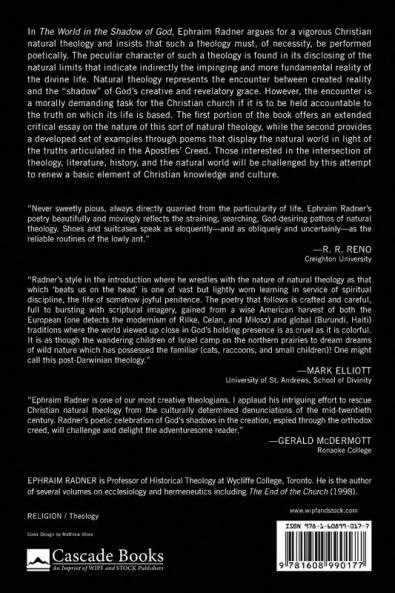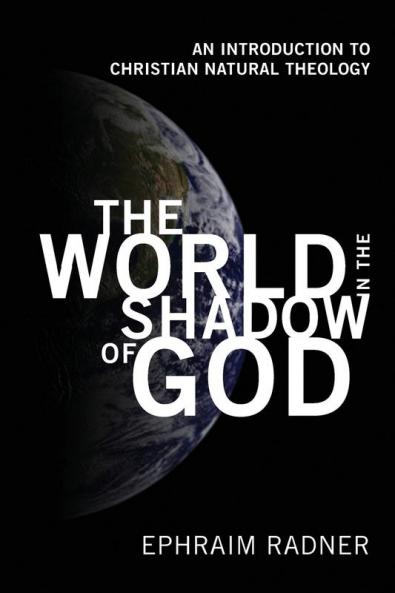English
Paperback
₹1598
₹1998
20.02% OFF
(All inclusive*)
Delivery Options
Please enter pincode to check delivery time.
*COD & Shipping Charges may apply on certain items.
Review final details at checkout.
Looking to place a bulk order? SUBMIT DETAILS
About The Book
Description
Author
Description: In The World in the Shadow of God Ephraim Radner argues for a vigorous Christian natural theology and insists that such a theology must of necessity be performed poetically. The peculiar character of such a theology is found in its disclosing of the natural limits that indicate indirectly the impinging and more fundamental reality of the divine life. Natural theology represents the encounter between created reality and the shadow of Gods creative and revelatory grace. However the encounter is a morally demanding task for the Christian church if it is to be held accountable to the truth on which its life is based. The first portion of the book offers an extended critical essay on the nature of this sort of natural theology while the second provides a developed set of examples through poems that display the natural world in light of the truths articulated in the Apostles Creed. Those interested in the intersection of theology literature history and the natural world will be challenged by this attempt to renew a basic element of Christian knowledge and culture. Endorsements: Never sweetly pious always directly quarried from the particularity of life Ephraim Radners poetry beautifully and movingly reflects the straining searching God-desiring pathos of natural theology. Shoes and suitcases speak as eloquently--and as obliquely and uncertainly--as the reliable routines of the lowly ant. --R. R. Reno Creighton University Radners style in the introduction where he wrestles with the nature of natural theology as that which beats us on the head is one of vast but lightly worn learning in service of spiritual discipline the life of somehow joyful penitence. The poetry that follows is crafted and careful full to bursting with Scriptural imagery gained from a wise American harvest of both the European (one detects the modernism of Rilke Celan and Milosz) and global (Burundi Haiti) traditions where the world viewed up close in Gods holding presence is as cruel as it is colorful. It is as though the wandering children of Israel camp on the northern prairies to dream dreams of wild nature which has possessed the familiar (cats raccoons and small children!) One might call this post-Darwinian theology. --Mark Elliott University of St. Andrews School of Divinity About the Contributor(s): Ephraim Radner is Professor of Historical Theology at Wycliffe College Toronto. He is the author of several volumes on ecclesiology and hermeneutics including The End of the Church (1998).
Delivery Options
Please enter pincode to check delivery time.
*COD & Shipping Charges may apply on certain items.
Review final details at checkout.
Details
ISBN 13
9781608990177
Publication Date
-01-06-2010
Pages
-178
Weight
-250 grams
Dimensions
-152x229x10.41 mm











